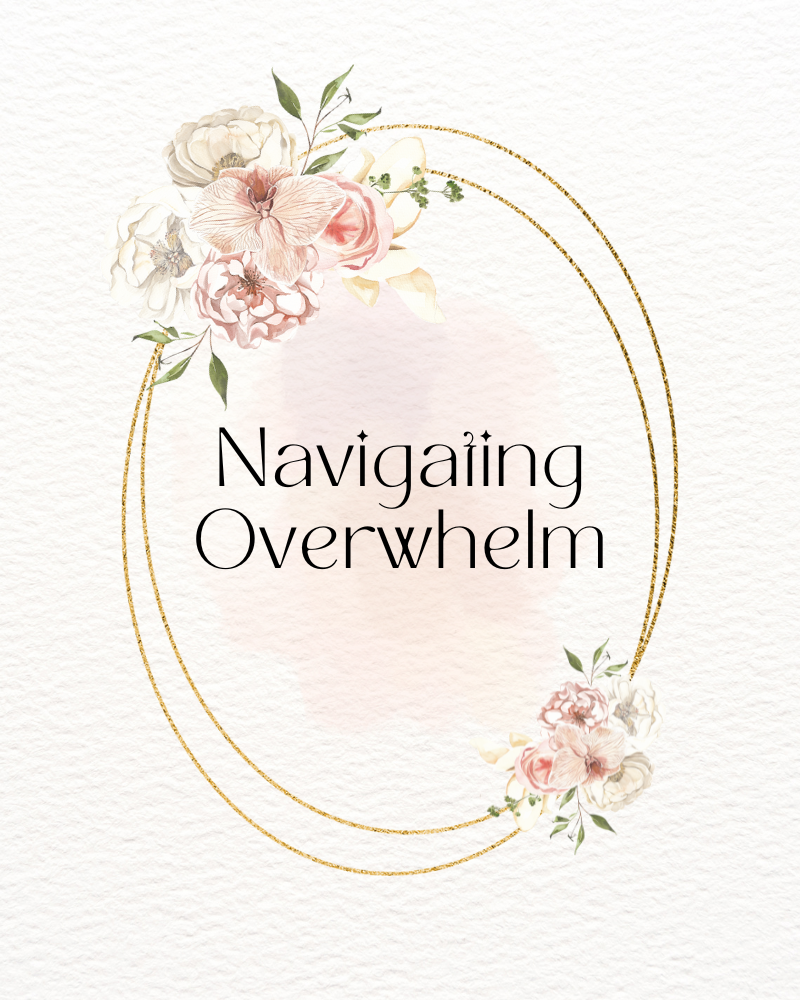Are you having trouble navigating overwhelm? You’re not alone. We’ve all been there. From work or school to relationships and finances, life can sometimes feel like a never-ending cycle of stress and anxiety. But it doesn’t have to be that way. Over the course of July we’ll be bringing you a step-by-step guide to help you tame the tangle of tasks. In this blog post, we’ll explore some of the most common reasons why we feel overwhelmed and how to take actionable steps to overcome them.

Are you anticipating a stressful week? Does it seem like your to-do list is never-ending? Holidays (whether summer or Christmas) can be a squeeze point for overwhelm. There’s often a deadline in place and we have so much that needs to be done before we hit it. The overwhelm is usually less about the activities themselves though and more about us having emotions about them that are difficult to manage.
When you’re feeling overwhelmed, it’s like your emotions are bigger than your capacity to cope. We’re seeing more and more people in our society struggling with out-of-control feelings, fatigue for no apparent reason, and difficulty concentrating on everyday tasks. Knowing what may be causing your overwhelm is a key step in getting back in control and navigating around it.
Knowing how you feel is not the same as knowing why you feel that way. Many things can cause you to feel overwhelmed, including:
Unrealistic expectations
This is one of my own key reasons for overwhelm – I add too many items to my list, expecting it all to be accomplished. Sometimes we do it due to the fear of missing out on opportunities, or not wanting to look bad. Trying to do too much though will only lead to stress and anxiety and you may feel worse if you drop the ball on your commitments. Instead, be realistic about what you can actually handle and politely say “no” to the rest. That way, you’ll be able to focus on what’s important and avoid feeling overwhelmed.
Bombardment by media notifications
We’re all guilty of being a little too obsessed with our smartphones. From getting notifications about texts and emails, to seeing what our friends are up to, they can really take over our lives and increase our stress levels. To help break the habit, try silencing your phone during meals and family time. Focus on your conversations and don’t feel the need to answer every ping straight away. It’s a great way to stay connected to the people around you while also taking a break from your device.
Unhealthy boundaries
People pleasers often find themselves in a tough spot, constantly striving to be liked by others. This often leads to overcommitting and saying yes to everyone but themselves. It’s important to set boundaries and learn to say no more often. We ran a whole series of articles on better boundaries in April, so if this is part of your pattern of overwhelm then please check it out.
No time for self-care
Having too many commitments can take a toll on your mental and physical health. When you’re feeling overwhelmed, it’s easy to fall into a cycle of only doing the bare minimum for yourself to get through the day. But it’s important to take some time to relax and recharge. Take a break from the hustle and bustle and give yourself a hot bath, a good book, and a little ‘me’ time.
We hope this introduction has helped you identify some of the causes of overwhelm in your own life. Feelings of overwhelm will threaten your happiness if you don’t put measures in place to stop it. By taking the needed steps to change things you’ll be navigating overwhelm and steering towards calmer waters.
